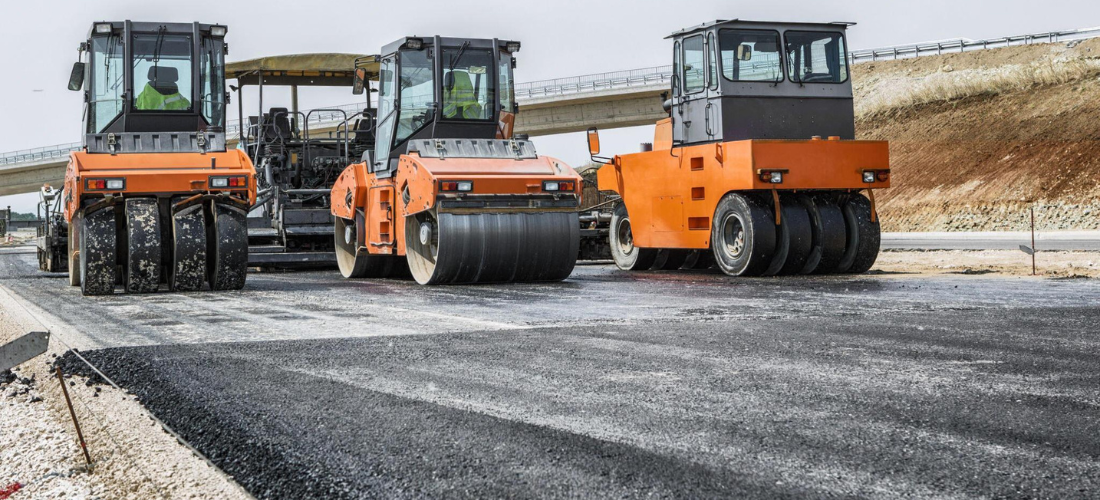Roads are the lifelines of modern civilization, connecting communities, facilitating
trade, and fostering economic growth. Among the various materials used in road
construction, bitumen stands out as a cornerstone due to its versatility, durability, and
cost-effectiveness. Understanding the intricacies of bitumen road construction is
crucial for engineers, policymakers, and stakeholders involved in infrastructure
development. In this article, we embark on a journey to explore the techniques,
benefits, and best practices associated with bitumen road construction.
- Bitumen: The Backbone of Modern Roads
Bitumen, also known as asphalt, is a viscous, black, semi-solid form of petroleum. Its
unique properties make it an ideal binder for constructing roads. When mixed with
aggregates such as gravel, sand, or crushed rock, bitumen forms asphalt concrete, a
durable material capable of withstanding heavy loads and harsh weather conditions. - Techniques in Bitumen Road Construction
a. Mix Design: Achieving the right mix of bitumen and aggregates is essential for
ensuring the structural integrity and longevity of the road. Engineers meticulously
design asphalt mixes based on factors such as traffic volume, climate, and soil
conditions.
b. Paving: The process of laying asphalt involves meticulous planning and precision.
Asphalt mixtures are heated to a specific temperature and spread evenly using
pavers. Compaction follows immediately to achieve the desired density and eliminate
air voids.
c. Surface Treatment: Surface treatments like seal coating and microsurfacing help
protect the asphalt pavement from oxidation, moisture intrusion, and wear-and-tear,
thereby extending its lifespan. - Benefits of Bitumen Road Construction
a. Durability: Bitumen roads exhibit excellent resistance to deformation and cracking,
ensuring long-term performance even under heavy traffic loads.
b. Smooth Riding Surface:Well-constructed bitumen roads offer a smooth driving
experience, reducing vehicle wear and tear and enhancing safety for motorists.
c. Cost-Effectiveness: Compared to alternative materials, bitumen road construction
often proves more cost-effective, both in terms of initial investment and long-term
maintenance.
d. Recyclability: Asphalt pavements are highly recyclable, with reclaimed asphalt
pavement (RAP) being commonly used in new road construction and maintenance
projects, thus reducing environmental impact and conserving natural resources.
- Best Practices for Sustainable Bitumen Road Construction
a. Proper Drainage: Effective drainage design prevents water accumulation on road
surfaces, mitigating the risk of water-related damage such as potholes and rutting.
b. Regular Maintenance: Timely repair of cracks, potholes, and surface distresses is
essential for prolonging the lifespan of bitumen roads and minimizing the need for
costly rehabilitation.
c. Incorporation of Recycled Materials: Utilizing recycled asphalt and other reclaimed
materials not only reduces waste but also enhances the sustainability of road
construction projects.
d. Adoption of Innovative Technologies: Embracing advancements in materials
engineering, construction equipment, and pavement design methodologies can
further enhance the performance and sustainability of bitumen roads.
Conclusion
Bitumen road construction represents a cornerstone of modern infrastructure
development, offering a blend of durability, versatility, and cost-effectiveness. By
understanding the techniques, benefits, and best practices associated with bitumen
road construction, stakeholders can ensure the creation of resilient and sustainable
transportation networks that serve communities for generations to come. As we
continue to innovate and evolve in the field of road construction, bitumen remains a
steadfast ally in our quest for safe, reliable, and efficient transportation infrastructure.

